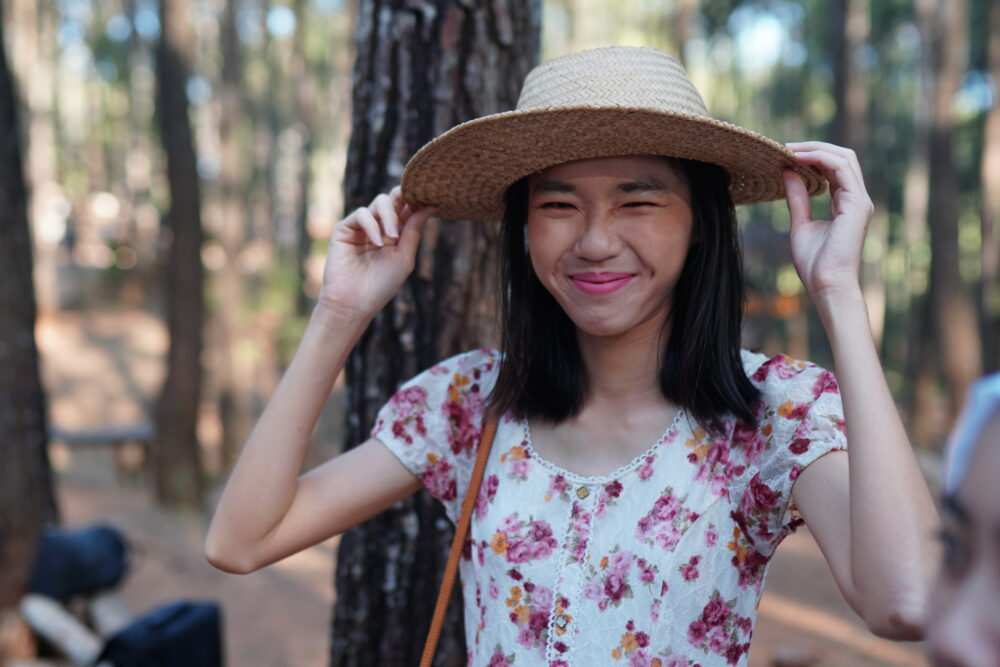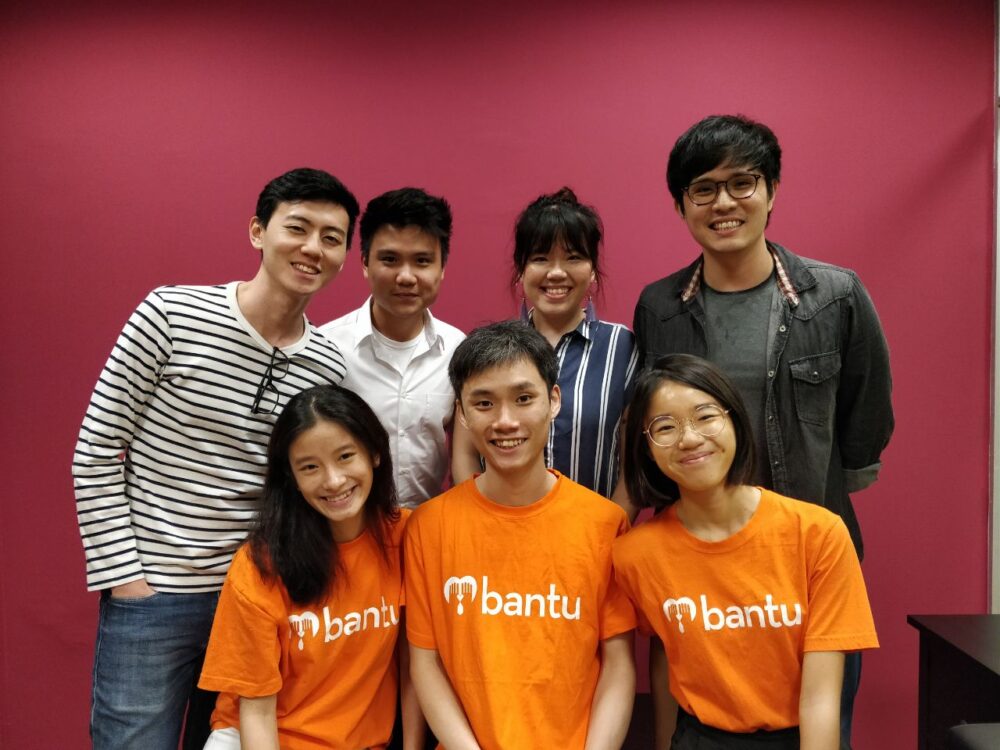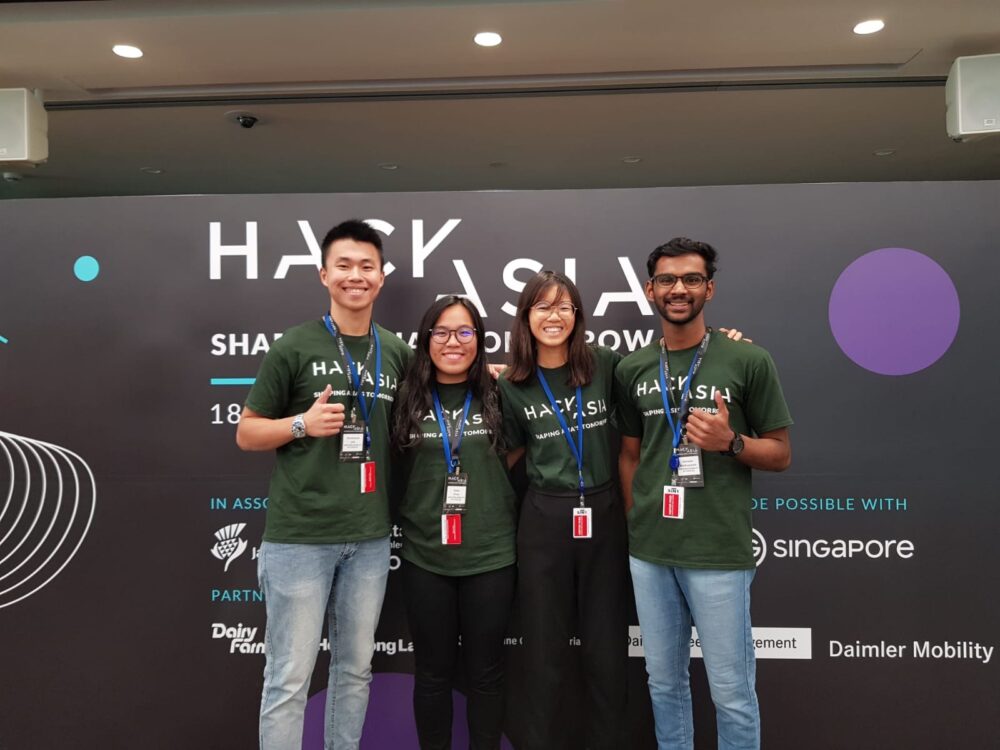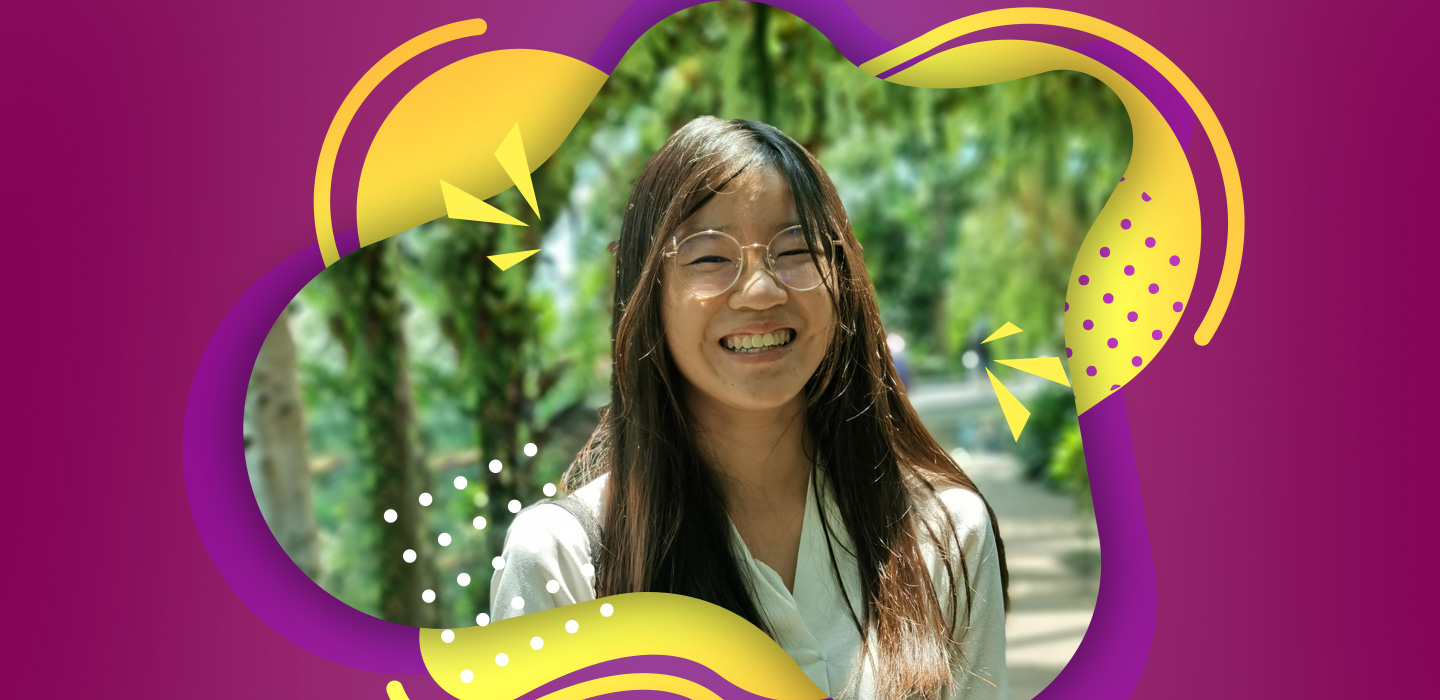Q: Hi Kai Xin, tell us about yourself!
Hi, I’m Kai Xin! 👋🏽 I’m formerly from Dunman High School and am currently a 3rd year student taking a Double Degree Programme in Business and Communications & New Media (CNM). I’m also in the University Scholars Programme and stay at Cinnamon College at Universty Town. This technically makes me a part of three NUS faculties! In Business, I am doing a double specialisation in Marketing and Innovation & Entrepreneurship.
My personality can probably be summed up with my name “Kai Xin”, which means happiness in Chinese! I try to be enthusiastic and optimistic about everything, and I’m always smiling. 😊 I have lots of hobbies—reading, writing, reading, painting, drawing, graphic design, photography, filming, video-editing… I can’t decide on just one! That’s probably the reason why I have a double degree AND double specialisation.

The bright-eyed and cheerful Kaixin
Q: What drew you to NUS Business School?
The number one reason why I chose NUS was because of the Double Degree Programme (DDP).
I knew right after graduating from junior college that I wanted to pursue marketing and communications, and when I learnt about the DDP, I thought it was the best of both worlds! I love that the NUS curriculum provides the flexibility to study a variety of subjects. I know friends who take Double Degrees in BBA and Economics, BBA and Business Analytics, amongst others. It’s like a ‘buy one get one free’ deal, because I get to graduate with two degrees in the shortest span of time —totally worth it!
Q: Many students are deciding between BIZ or CNM. What made you choose to do a DDP in both, and what are the synergies?
I think the great thing about being a DDP student in BIZ and CNM is that there are a lot of synergies between the two. NUS allows you to take common modules, which means you can take modules with similar content and double-count across the two programmes. For instance, as I specialise in Marketing, one common module is a class on Advertising & Promotion Management, which means I don’t have to take the anti-requisite module Advertising Strategies in CNM (or vice versa, if I take the CNM module, I don’t have to take the BIZ module).
It is also fascinating to see how the things I learn in one module relates to another. For example, when I learn about marketing strategies and theories in BIZ, I get to learn the practical and technical skills on how to design actual advertisements in CNM, such as Digital Storytelling (photography, filmmaking), Communication Design (Photoshop and Illustrator) or Media Writing (copywriting for social media and press releases). Or I may learn about Diffusion of Innovation theory in CNM, but apply it to real world applications when we conceptualised our own product in New Product Development or Entrepreneurial Marketing. Both BIZ and CNM complement each other, with the two marrying theory and practice together.
Q: What is one thing you are really proud of achieving during your time here you never thought you would?
Something I am proud of and will always remember will be my very first internship. When I was applying for NUS Overseas College (NOC), I got a chance to meet Nicholas Ooi, who was a former NUS and NOC alumni and also the co-founder of bantu, a social enterprise in Singapore. Nicholas had started the startup with three fellow co-founders, Janelle Lee, Joshua Foong and Han Lynn, while they were on NOC. When he heard that I was interested in social entrepreneurship, he offered me a job at bantu. Not only did I get to work with and meet amazing people like Nicholas and Janelle and pick up new skills, I also got to experience working at a social enterprise and local startup.

Kaixin (first row, extreme right) with her "bantu" team
Q: What were some resources you had at NUS BIZ that helped you discover and develop yourself through the years?
NUS has truly given me so many opportunities to take part in exciting things like competitions and hackathons.
In 2019, I took part in the 48-hour Hack.asia hackathon by Jardine Matheson and Daimler, where my teammates and I were selected as one of the finalists out of 800 students for developing a machine learning programme to detect and predict traffic accidents. In the same year, I also took part in PRISM, a social hackathon, and clinched first place for a VR mental health concept. In 2020, I created an animated short film for one of my CNM classes on Digital Storytelling and it was shortlisted for the Jury Award in the Viddsee Awards competition. In the midst of the pandemic, I recreated the National Gallery of Singapore on Minecraft so that people could virtually “visit” the museum. And just for fun, I submitted it to the A List Content Creation Competition and was selected as one of the top 5 finalists. I didn’t win, but to me, it’s not the winning that matters. As clichéd as it may sound, it’s not the result that is important, but the process. I’ve taken part in plenty of case competitions, and though I’ve never won any, I don’t regret joining. I think that simply the opportunity and process of taking part and making something is valuable in itself.

Kaixin (second from right) with her Hack.asia team
Q: Share one challenge you experienced during your internship and how education at NUS helped you through?
In my second year, I went on the NUS Overseas College (NOC) programme in Indonesia and interned at a local tech startup in Yogyakarta for three months. The biggest challenge was probably the language barrier, because I didn’t speak a single word of Bahasa Indonesia. However, I think one thing I learned from my education at NUS is being open to new experiences and willing to speak up and ask questions. I didn’t shy away, even though I couldn’t speak Bahasa, but actively tried to talk to and learn the people I met. I pushed myself out of my comfort zone, such as signing up for a spoken word poetry slam and making friends with local university students there. During my internship, I was tasked with conceptualising ideas and designing graphics for social media marketing. Inspired by what I learned in marketing and CNM, I came up with an idea for an interactive “choose your adventure” type story on Instagram Story, which turned out to be a huge success and hit amongst my company’s social media followers. Despite the language barrier, I worked with a colleague to develop the copy (with the help of trusty Google Translate as well). I even helped out in the filming of ads and was the model for one of their videos, and got to record a voiceover in Bahasa Indonesian. By the end of the trip, I had learned enough Bahasa words to carry out a basic conversation with my Gojek drivers and the bibi (aunties) at the warungs. It taught me that art, marketing and friendliness is truly a universal language!
Q: Looking at your time in NUSBIZ, if you had one word to share with the juniors on what to be, what would it be and why?
Be BOLD! University is a time for you to explore. There are so many opportunities. Try interning in different roles, companies and industries that you are interested in. Try going on overseas programmes to different countries and broaden your horizon. All the most memorable and amazing things I did in university were all because I was bold enough to dare and try. I’ve been to Thailand to learn painting, I’ve camped at Pulau Ubin to catch insects, and I’ve worked in Indonesia. I’ve worked in a social enterprise in Singapore and a tech startup in Indonesia. With the Covid-19 pandemic, my Student Exchange Programme to Beijing was cancelled and my internship plans were also affected, but I guess this is all part of being agile and adapting to the VUCA (Volatile, Uncertain, Complex, Ambiguous) world we live in, right?
Q: What else would you like to share with your juniors?
Be kind. In the business school (and business world), don’t get too caught up with results and competitiveness. I’ve met many kind people who have helped me along the way, be it classmates, seniors or teachers, and I also hope to give back by spreading kindness and positivity to others. I’m always happy to help fellow students and juniors with advice, help and even free notes (true story: people have asked on Reddit for Biz notes and I’ve sent it to them). It would be the best thing if we could cultivate a culture of compassion, not just competitiveness, throughout BIZ and NUS.






